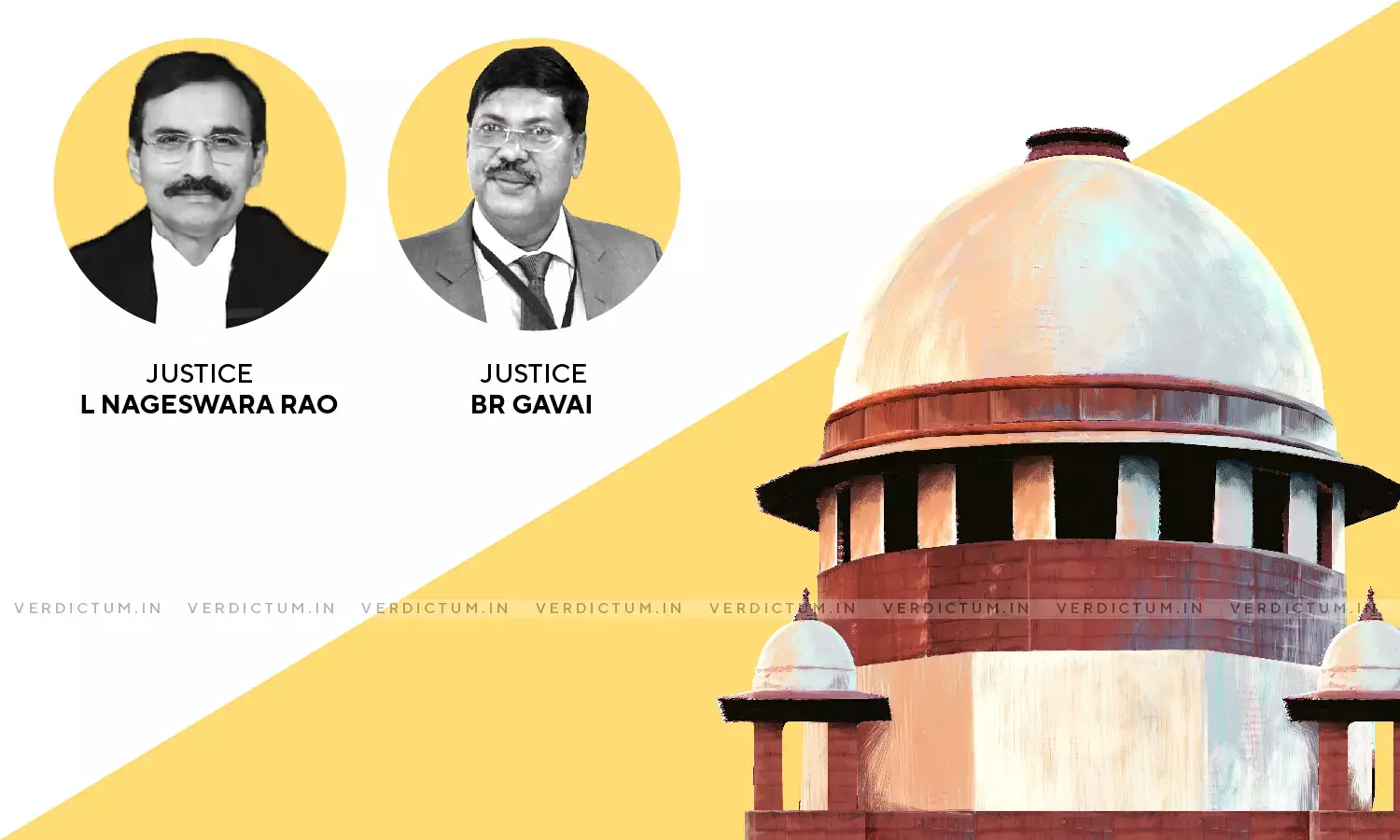Consent Decree Cannot Be Modified/ Altered Unless Mistake Is A Patent Or Obvious Mistake U/s. 151 Of CPC - SC

A two-judge bench of Supreme Court comprising of Justice L. Nageshwara Rao and Justice B.R. Gavai has upheld the inherent power of the Court to rectify the consent decree to ensure that it was free from clerical or arithmetical errors so as to bring it in conformity with the terms of the compromise.
Moreover, the Court opined that it could entertain an application under Section 151 of the CPC for alterations/ modification of the consent decree if the same was vitiated by fraud, misrepresentation, or misunderstanding. Additionally, it was observed that a consent decree could not be modified/ altered unless the mistake was a patent or obvious mistake.
The Delhi High Court had passed an ex-parte ad-interim order of stay after which the parties were referred to mediation. After a detailed correspondence and exchange of e-mails between the counsel appearing for the parties, a settlement arrived at vide a Settlement Agreement. The High Court decreed the suit in terms of the Settlement Agreement. Subsequently, an application was filed by the Appellant under Sections 152 and 153 read with Section 151 of the CPC for correction/ rectification/ amendment of the judgment of the High Court. The Appellant had stated in the said application that the Settlement Agreement pertained only to trademark "FX-991ES PLUS'/ 'FX-991". However, there was an inadvertent typographical error of the trademark in the Settlement Agreement as "FX-991ES PLUS/ FX/ 991". However, the High Court dismissed the application. Thus, an appeal was preferred against the impugned judgment of the Delhi High Court.
Senior Counsel, Mr. K.V. Viswanathan, appeared for the Appellant while Senior Counsel Dr. Abhishek Manu Singhvi assisted by Mr. Chander Lal, appeared for the Respondents.
The primary issue in this case was -
- Whether the Appellant had made out a case for modification/ alteration of the decree by his application being treated to be one under Rule 3 of Order 23 of the Code of Civil Procedure, 1908.
In the case, the Court referred to the correspondence between the advocates of the parties for a better appreciation of the contention that there was a misunderstanding between the parties while entering into the Settlement Agreement which was sought to be corrected. After the examination, it was observed that the Appellant had undertaken not to adopt/ manufacture/ sell/ offer/ advertise/ promote/ use in any manner, any goods incorporating the design of the Respondents of 'FX-991ES PLUS' bearing Nos. 214283 and 214282 and/ or the trademark 'FX-991ES PLUS'/ 'FX'/ '991' and/ or its packaging or any other identically, deceptively, and/ or confusingly similar packaging to that of the Respondents
The Apex Court relied on the case of Banwari Lal v. Chando Devi to assert that the illegality and validity of a compromise could be examined under Section 151 of the CPC. A judgment by consent was intended to stop litigation between the parties just as much as a judgment resulting from a decision of the Court at the end of a long drawn-out fight. A compromise decree thus, created an estoppel by judgment as per the case of Byram Peston Gariwala v. Union of India. It was further observed that – "A consent decree would not serve as an estoppel, where the compromise was vitiated by fraud, misrepresentation, or mistake. The Court in exercise of its inherent power may rectify the consent decree to ensure that it is free from clerical or arithmetical errors so as to bring it in conformity with the terms of the compromise. Undoubtedly, the Court can entertain an Application under Section 151 of the CPC for alterations/ modification of the consent decree if the same is vitiated by fraud, misrepresentation, or misunderstanding."
With respect to the facts, the Court observed that the understanding between the parties was with respect to "FX-991ES PLUS" as a whole and not with reference to "FX". Close scrutiny of the correspondence between the parties showed that the Settlement Agreement was arrived at after detailed consultation and deliberations. Thereafter, the parties were communicating with each other and they took six months to arrive at a settlement. The final Settlement Agreement was approved by the mediator. The Delhi High Court had applied its mind and passed a decree in terms of the Settlement Agreement. Though the High Court had dismissed the application by refusing to entertain it on the ground that it was filed under Section 152 of the CPC, the Apex Court had considered the submissions of the parties to examine whether a case for modification of the decree had been made out under the proviso to Order 23 Rule 3 read with Section 151 of the CPC.
It was held that there was no allegation either of fraud or misrepresentation on the part of the Respondents. However, the Court was unable to agree with the Appellant that there was a mistake committed while entering into a settlement agreement due to a misunderstanding since the correspondence between the advocates for the parties who were experts in law showed that there was no ambiguity or lack of clarity giving rise to any misunderstanding. Further, it was asserted by the Court that - "Even assuming there is a mistake, a consent decree cannot be modified/ altered unless the mistake is a patent or obvious mistake. Or else, there is a danger of every consent decree being sought to be altered on the ground of mistake/ misunderstanding by a party to the consent decree."
Thus, the Supreme Court upheld the judgment of the Delhi High Court and dismissed the appeal accordingly.
Click here to read/download the Judgment

